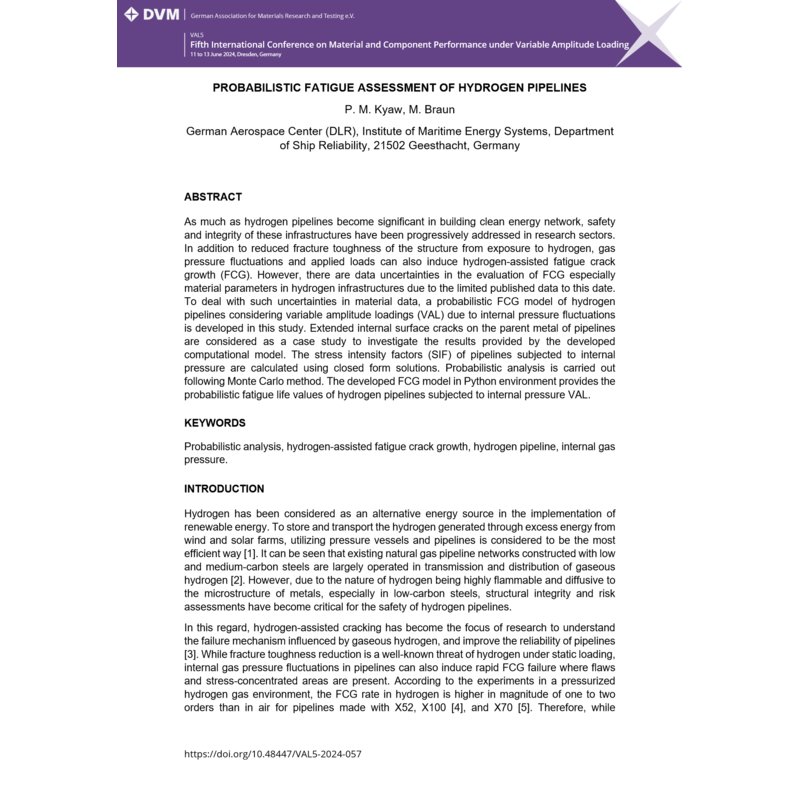- Nur online erhältlich



Hydrogen has been considered as an alternative energy source in the implementation of renewable energy. To harness hydrogen as an energy carrier in carbon-friendly approach, production, transportation and storage of hydrogen are considered as important aspects. Due to the nature of hydrogen being highly flammable and diffusive to the microstructure of the metals, structural integrity assessments of hydrogen infrastructures, especially transportation pipelines, have been addressed widely in research and development [1]. While subject to a static loading, hydrogen is known as the cause of reduced fracture toughness. In addition to that, gas pressure fluctuations and applied loads can also induce hydrogen-assisted fatigue crack propagation (FCP) [2].
FCP analyses are typically…

Datenschutzbedingungen (bearbeiten im Modul "Kundenvorteile")

Lieferbedingungen (bearbeiten im Modul "Kundenvorteile")

Rücksendebedingungen (bearbeiten im Modul "Kundenvorteile")
Hydrogen has been considered as an alternative energy source in the implementation of renewable energy. To harness hydrogen as an energy carrier in carbon-friendly approach, production, transportation and storage of hydrogen are considered as important aspects. Due to the nature of hydrogen being highly flammable and diffusive to the microstructure of the metals, structural integrity assessments of hydrogen infrastructures, especially transportation pipelines, have been addressed widely in research and development [1]. While subject to a static loading, hydrogen is known as the cause of reduced fracture toughness. In addition to that, gas pressure fluctuations and applied loads can also induce hydrogen-assisted fatigue crack propagation (FCP) [2].
FCP analyses are typically evaluated using deterministic approach in most of the existing studies. However, governing parameters in the FCP analyses are not accurately predictable; the scattered fracture toughness in ductile-brittle transition region, wide range of stress and applied loading conditions, flaws of various sizes are not appropriate to consider as single values [3]. Moreover, estimations of material constants for the FCP evaluations are also associated with uncertainties. For these reasons, assessments for FCP should be performed probabilistically rather than deterministically. In this study, surface cracks of internally pressurized hydrogen pipelines are considered for probabilistic FCP assessment. The stress intensity factors and fatigue crack growth rates are calculated using closed form solutions provided in previous studies. The probabilistic fracture analysis is carried out by employing random sampling of inputs in Monte Carlo simulation. This probabilistic FCP model reveals the fatigue failure probability of damaged hydrogen pipelines based on randomly selected material and initial crack size parameters.